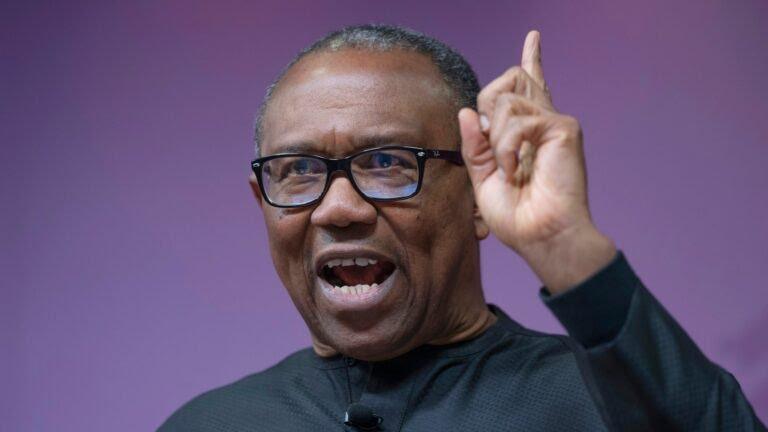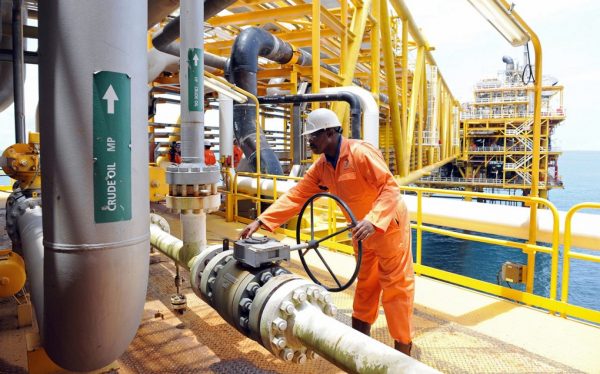
Sugar importation rises as local production falters,
•Sugarcane farmers lament neglect, access to sugar refiners
•Sugar Devpt council declines comment
By Babajide Komolafe, Economy Editor, Gabriel Ewepu and John Alechenu
Reflecting the gross under-performance of the sugar sector after over 15 years of efforts towards self-sufficiency through local production, Nigeria’s importation of sugar and sugarcane rose sharply by 328 per cent in five years from 2020 to 2024.
The development comes at the backdrop of a clear failure of the one-and-a-half decade of implementation of the National Sugar Master Plan, NSMP, rolled out in 2010, and renewed in 2020.
Financial Vanguard findings from data on sugar importation by the National Bureau of Statistics (NBS) showed that sugar importation rose to N2.21 trillion in five years to 2024, from N516.61 billion in the preceding five years to 2019.
According to the National Sugar Development Council, NSDC, Nigeria currently produces 40,000 metric tonnes of sugar, far below the annual demand estimated at 1.7 million tonnes, indicating a demand deficit of 1.75 metric tonnes or 97 per cent.
This remains largely unchanged from the 98 per cent deficit in 2010 when the first phase of the NSMP, was introduced with the aim of eliminating sugar importation by 2020.
According to the NSDC, local production stood at 30,000 metric tonnes in 2010 while importation stood at 1.41 million metric tonnes, representing a deficit of 1.38 million metric tonnes or 98 per cent.
The above trend shows that very little progress has been achieved over the 15 years of the NSMP.
The core task of the NSMP is creating and executing a Backward Integration Programme that mandated companies granted approval for sugar importation commence backward integration projects immediately, leading to elimination of imports and stoppage of sugar import licensing by 2020.
Under the NSMP, Nigeria was to establish 28 sugar factories of varying capacities and bring about 250,000 hectares of land into sugarcane cultivation during the 10-year period. The bulk of the investment capital was projected to come from private investors.
While the NSMP has succeeded in attracting private sector operators like Dangote Sugar, BUA Foods, Nigeria Flour Mills of Nigeria and others, who were expected to set up refineries with combined capacity to refine 3.5 million metric tonnes of sugar annually.
But actual results show that the program is going in the opposite direction, increasing the importation into the country.
NSMP Phase 2
Worried by this level of underperformance, the Federal Government decided to repeat the program all-over again by launching the Phase II of the NSMP.
Addressing Chief Executives of sugar manufacturing plants recently in Abuja, the Executive Secretary/ Chief Executive of the NSDC, Mr Kamar Bakrin, said: “The plan targets the production of a minimum of 2 million metric tons of sugar, 400 MW of electricity, and the creation of 110,000 jobs across the value-chain, nationwide.
“Crucially, the NSMP II will require between 200,000 to 250,000 hectares of suitable land, and an estimated $3.5 billion in investments. In addition, collaborative efforts will focus on empowering host communities of sugar projects,” he said.
Bakrin added that a robust framework has been devised to monitor the performance of NSMP II, establishing clear targets and milestones over the period.
“This monitoring mechanism ensures accountability and facilitates timely adjustments to optimise outcomes,” he said.
Sugarcane farmers lament
Financial Vanguard investigations, however, revealed that a major drawback of the NSMP is the little or no recognition and incorporation of small holder sugar cane farmers.
Most of the smallholder sugarcane farmers who spoke to Financial Vanguard express ignorance about the NSMP.
They also lamented lack of support from the government and lack of access to sugar refiners and other commercial end users of their products.
A small holder sugarcane farmer along the Abuja-Kaduna Road, Musa Uba, expressed concerns over the lack of support especially in the area of improved variety of seedling, pesticides and the absence of a structured market as well as lack of government support.
He explained that he and his colleagues on the farm cultivate and sell their produce to retailers and middlemen at prices that fluctuate.
Uba said, “Like you see me on my farm now, what grows here is mostly sugarcane and bananas because the land here is largely swampy. Sometimes we are faced with some kind of crop diseases that lower yield. Since our crops are not insured, we bear our losses when they occur.
“What we grow we sell to individuals, mostly some people who come with small trucks and some retailers. We sell the canes in bunches of 20 sticks. Each sells for between N8, 000 to N10, 000 depending on the size.
“We can certainly do better when we receive the required support, especially if we can get access directly to factories and end users who can pay better prices to encourage better production.
“A lot of what we produce ends up on the streets with hawkers who sell to people who just chew and litter the environment with the husk.”
A smallholder sugarcane farmer from Makarfi Local Government Area of Kaduna State, Thomas Sule, said: “Since I have been a sugarcane farmer, I have not received any support from both the federal and state governments, and as a small-holder farmer it is very challenging.
“We used to see interventions from some donor agencies to other farmers but none given to us sugarcane farmers.”
Meanwhile, he said companies that use sugar to produce drinks and other products do not patronize them, rather import the sugar from other countries at the detriment of local sugarcane producers.
“We have not received any interventions from development agencies in the agricultural sector.
“We sell our sugarcanes like that to some local buyers at a loss annually. We sell a bundle of sugarcane at N4,000 during harvest.
“We plant the normal sugarcane stem as we don’t know whether there are any sugarcane stems better than the ones we cultivate”, he added.
However, he (Sule) said the challenges they have include; Lack of funding, training and access to market or off-takers.
“Our demand as sugarcane farmers is for the government to create access to sustainable funding in order for us to expand our farms for greater productivity.
“In terms of capacity building, we need more training so we can compete favourably locally and internationally to meet local and international demands.
“Access to the market is another major demand we are making to the government. When we have access to markets with high patronage the sugarcane subsector will thrive and importation will drastically reduce.
“We want the private and public sectors to partner to establish local sugarcane refining companies in the states and zones for high productivity”, he said.
Another sugarcane farmer from Jaba Local Government Area of Kaduna State, Solomon Kaura, said the situation sugarcane farmers face is so deep and touching as they have not been carried along in any form of government’s interventions to add value to what they are doing in the value chain.
“I have been a sugarcane farmer for years now. I have not received any support from both State and Federal Governments to boost my sugarcane production.
“As sugarcane farmers we do not know about any plan for us by the government and we are doing what we can despite our efforts. We seem to be forgotten because the government is yet to prioritize local sugarcane farmers, especially the small-holder farmers.
“There are a lot of sugarcane farmers and farms but not really aggregated to harness their potential to boost local sugar production despite the high consumption of sugar by Nigerians because the country simply relies on importation of the commodity.
“The sugarcane I produce is only bought by some local traders who in turn sell to persons we call ‘mai reke’ sugarcane sellers/ hawkers to the people, and at a poor price despite the cost of production before harvest.
“We know that if the government really intervenes with good and sustainable policies just for the sugarcane subsector there will be a lasting transformation in the sugar industry because it is a vast subsector whose impact would be felt in the economy”, he said.
According to him, the sugarcane stem he cultivates is the black coloured type and it takes nine to 12 months for harvesting, and they are sold at the nearby local market without value addition.
He pointed out that the major challenges in the production of sugarcane include; Termites destroying the sugarcane farms due to lack of pesticides; poor irrigation system on sugarcane farms; and low patronage.
“I want to extend the farming but no financial support; Chemicals for termites and weeds control, and irrigation facilities, and we need patronage. Support sugarcane farmers financially and materially”, he added.
Simon Dennis is also a sugarcane farmer from Kachia Local Government Area of Kaduna State, who said the sugarcane value chain is not inclusive of sugarcane farmers.
According to Dennis, he harvests and sells his sugarcanes right in his farm.
“We are really suffering as sugarcane farmers and we have the land and manpower to cultivate and meet the sugar needs of our country but see how we look wretched and abandoned because of no plans for us.
“Maybe there are plans which we don’t know or carried along. We have so many challenges affecting our productivity and this include poor attention given to us by the government and other stakeholders, and also we do not have access to funds to boost our production, and the issue of irrigation and poor patronage is affecting us seriously., and also we are not trained nor empowered.
“Local sugarcane farmers should be empowered, it is my advice to the government.”
How to enhance local capacity
Meanwhile, an agribusiness firm, DeBranch Farmers Limited. who also render services to sugarcane farmers in Kaduna State attested to the huge potential of sugarcane farmers not only in Kaduna State but most parts of northern Nigeria said there is a lot to do to ensure the sugarcane is transformed to an appreciable level as farmers are many in the production of sugarcane.
Speaking on the issues affecting sugarcane farmers and sugar production in the country, the Chief Executive Officer, CEO, DeBranch Farmers Limited, Sandra Victor-Gwafan, said most of the farmers struggle to survive amid plenty of untapped potential, but if they can receive adequate support Nigeria will become a net exporter of sugar and not net importer of the commodity.
NSDC, Ministry declines comment
Meanwhile, the National Sugar Development Council kept mum when contacted.
An over two-week-long attempt to get an official response from government quarters met a brick wall. When contacted, the Director, Media in the Ministry of Trade and Investment, Adebayo Thomas, referred Vanguard to the NSDC. In response to inquiries about the issues raised concerning the Nigerian Sugar industry, he said in a text message: “ Please direct this question(s) to the NSDC.
After three visits to the council office, where we were informed that the Executive Secretary, Karma Barkin and his Special Adviser (Media), Abdulrahman Abdulraheem, were away for a conference.
Abdulraheem picked one of the several calls and asked that questions be sent via WhatsApp. The questions and voice notes were sent, and the responses are still being awaited two weeks later. He has neither picked up his calls nor has he responded to any of the messages.
The post Sugar importation rises as local production falters appeared first on Vanguard News.
,
Reflecting the gross under-performance of the sugar sector after over 15 years efforts towards self-sufficiency through local production, Nigeria’s importation of sugar and sugarcane rose sharply by 328 per cent in five years from 2020 to 2024.
The post Sugar importation rises as local production falters appeared first on Vanguard News.
, , Idowu Bankole, {authorlink},, , Vanguard News, August 11, 2025, 2:15 am









